LES MISERABLES:THE COUNT OF MONTE CRISTO
|
Marseille from Château d'If cell. Between the middle bars you will see the Notre-Dame de la Garde from this cell window. The Château d'If is a fortress (later a prison) located on the island of If, the smallest island in the Frioul Archipelago situated in the Mediterranean Sea about a mile offshore in the Bay of Marseille in southeastern France. It is famous for being one of the settings of Alexandre Dumas' adventure novel The Count of Monte Cristo. | 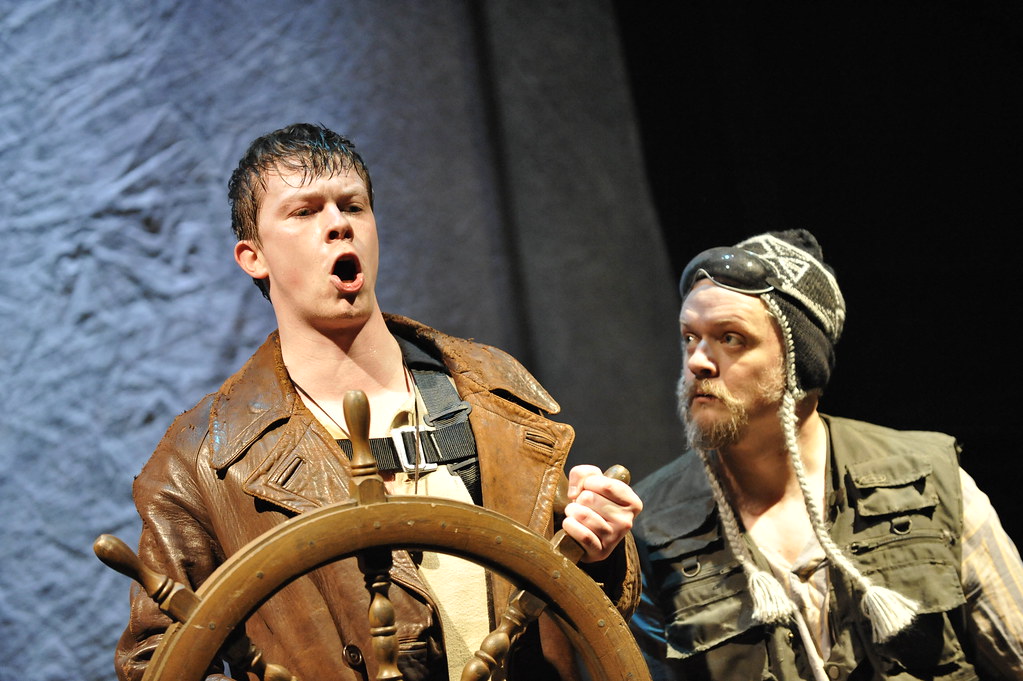 |
| | 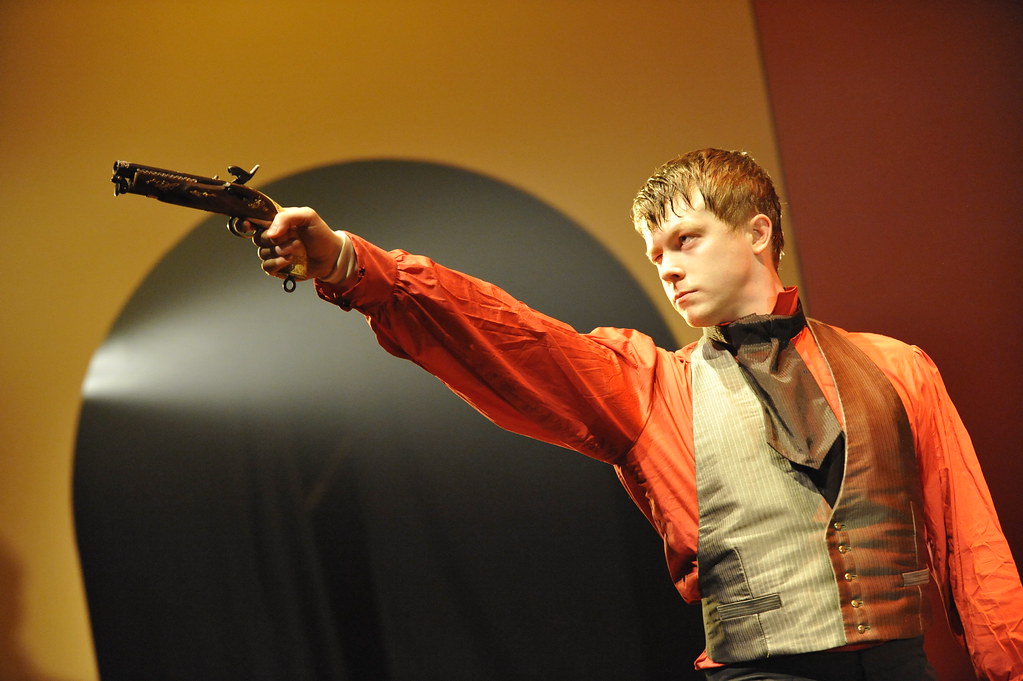 The Count of Monte Cristo |
Edmond Dantès
The main character Edmond Dantès was a merchant sailor prior to his imprisonment. In 1815 Edmond Dantès, a young and successful merchant sailor recently who has just been granted the succession of his erstwhile captain Leclère, returns toMarseille to marry his fiancée Mercédès. Leclère, a supporter of the exiled Napoléon I, found himself dying at sea and charged Dantès to deliver two objects: a package to Marshall Bertrand (exiled with Napoleon Bonaparte on Elba), and a letter from Elba to an unknown man in Paris. On the eve of his wedding to Mercédès, Fernand (Mercédès' cousin and a rival for her affections) is given subtle advice by Dantès's colleague Danglars (who is jealous of his rapid rise to captain), to send an anonymous note accusing Dantès of being a Bonapartist traitor. Caderousse (Dantès's cowardly and selfish neighbor) is drunk while the two conspirators set the trap for Dantès, and while he objects to the idea of hurting Dantès, he stays quiet the next day as Dantès is arrested then sentenced even though his testimony could have stopped the entire scandal from happening. Villefort, the deputy crown prosecutor in Marseille, while initially sympathetic to Dantès, destroys the letter from Elba when he discovers that it is addressed to his own father, a Bonapartist. In order to silence Dantès, he condemns him without trial to life imprisonment. After six years of imprisonment in the Château d'If, Dantès is on the verge of suicide when he befriends the Abbé Faria ("The Mad Priest"), a fellow prisoner who he hears trying to tunnel his way to freedom. Faria is the first person other than the guards that Dantès has spoken with since his imprisonment. Faria's calculations on his tunnel were off, and it ends up connecting the two prisoners' cells rather than leading to freedom. Over the course of the next eight years, Faria comes to give Dantès an extensive education in language, culture, and science. He also explains to Dantès how Danglars, Fernand, and Villefort would each have had their own reasons for wanting Dantès in prison. After years of friendship, and knowing himself to be close to death, Faria tells Dantès the location of a treasure on the island of Monte Cristo. When Faria dies, Dantès takes his place in the burial sack, moving the corpse to his own bed through their tunnel. When the guards throw the sack into the sea, Dantès escapes and swims to a nearby island where he is rescued by a smuggling ship the next morning. After several months of working with the smugglers, the ship makes a stop at Monte Cristo. Dantès fakes an injury and persuades the smugglers to leave him temporarily on the island while they finish their trip without him. He then makes his way to the hiding place of the treasure. After recovering the treasure, he leaves the smuggling business, buys a yacht, and returns to Marseille, where he begins to find out what became of everyone from his previous life. He later purchases both the island of Monte Cristo and the title of Count from the Tuscan government. Returning to Marseille, Dantès learns that his father died of starvation during his imprisonment, but before embarking on his efforts for revenge, he first helps several people who were kind to him before his imprisonment. Traveling as the Abbé Busoni, he meets Caderousse, now living in poverty, whose intervention might have saved Dantès from prison. Dantès learns that his other enemies have all become wealthy. He gives Caderousse a diamond that can be either a chance to redeem himself, or a trap that will lead to his ruin. Learning that his old employer Morrel is on the verge of bankruptcy, Dantès, in the guise of a senior clerk from a banking firm, buys all of Morrel's outstanding debts and gives Morrel an extension of three months to fulfill his obligations. At the end of the three months and with no way to repay his debts, Morrel is about to commit suicide when he learns that all of his debts have been mysteriously paid and that one of his lost ships has returned with a full cargo, secretly rebuilt and laden by Dantès. Dantès rejoices at the Morrel family's joy, then pledges to banish all warm sentiments from his heart and focus on vengeance. The Count of Monte CristoDisguised as the rich Count of Monte Cristo, Dantès takes revenge on the three men responsible for his unjust imprisonment: Fernand, now Count de Morcerf and Mercédès' husband; Danglars, now a baron and a wealthy banker; and Villefort, now procureur du roi — all of whom now live in Paris. The Count appears first in Rome, where he becomes acquainted with the Baron Franz d'Épinay, and Viscount Albert de Morcerf, the son of Mercédès and Fernand. Dantès arranges for the young Morcerf to be captured by the bandit Luigi Vampa before rescuing him from Vampa's gang. The Count then moves to Paris, and with Albert de Morcerf's introduction, becomes the sensation of the city. Due to his knowledge and rhetorical power, everyone (even his enemies, who do not recognize him) find him charming and seek his friendship. The Count dazzles the crass Danglars with his seemingly endless wealth, eventually persuading him to extend him a credit of six million francs, and withdraws 900,000. Under the terms of the arrangement, the Count can demand access to the remainder at any time. The Count manipulates the bond market, through a false telegraph signal, and quickly destroys a large portion of Danglars' fortune. The rest of it begins to rapidly disappear through mysterious bankruptcies, suspensions of payment, and more bad luck on the Stock Exchange. Villefort had once conducted an affair with Madame Danglars. She became pregnant and delivered the child in the house that the Count has now purchased. In a desperate attempt to cover up the affair, Villefort told Madame Danglars that the infant had been stillborn. Villefort then smothered the child, and thinking him to be dead, he tried to bury it secretly behind the house. While Villefort was burying the child, he was stabbed by Bertuccio (who had swore vengeance on him after Villefort refused to do anything about the murder of Bertuccio's brother). Bertuccio assumed Villefort was burying treasure. He dug it up, found the near dead child and brought him back to life. Bertuccio's sister-in-law brought the child up, giving him the name "Benedetto". Benedetto ends up falling into a very bad crowd and in the end murders the sister-in-law while trying to steal her money. After that, Benedetto runs away. The Count learns of this story from Bertuccio, who later becomes his servant. He purchases the house and hosts a dinner party there, to which he invites, among others, Villefort and Madame Danglars. During the dinner, the Count announces that, while doing landscaping, he had unearthed a box containing the remains of an infant and had referred the matter to the authorities to investigate. This puzzles Villefort, who knew that the infant's box had been removed and so the Count's story could not be true, and also alarms him that perhaps he knows the secret of his past affair with Madame Danglars and may be taunting him. Meanwhile, Benedetto has grown up to become a criminal and is sentenced to the galleys with Caderousse. After the two are freed by "Lord Wilmore", Benedetto is sponsored by the Count to take the identity of "Viscount Andrea Cavalcanti" and is introduced by him into Parisian society at the same dinner party, with neither Villefort nor Madame Danglars suspecting that Andrea is their presumed dead son. Andrea then ingratiates himself to Danglars who betroths his daughter Eugénie to Andrea after cancelling her engagement to Albert, son of Fernand. Meanwhile, Caderousse blackmails Andrea, threatening to reveal his past. Cornered by "Abbé Busoni" while attempting to rob the Count's house, Caderousse begs to be given another chance, but Dantès grimly remarks that he had done so twice and Caderousse did not change. He forces Caderousse to write a letter to Danglars exposing Cavalcanti as an impostor and allows Caderousse to leave the house. The moment Caderousse leaves the estate, he is stabbed in the back by Andrea. Caderousse manages to dictate and sign a deathbed statement identifying his killer, and the Count reveals his true identity to Caderousse moments before Caderousse dies. Years before, Ali Pasha, the ruler of Janina, had been betrayed to the Turks by Fernand. After Ali's death, Fernand sold his wife Vasiliki and his daughter Haydée into slavery. Haydée was found and bought by Dantès and becomes the Count's ward. The Count manipulates Danglars into researching the event, which is published in a newspaper. As a result, Fernand is brought to trial for his crimes. Haydée testifies against him, and Fernand is disgraced. Mercédès, still beautiful, is the only person to recognize the Count as Dantès. When Albert blames the Count for his father's downfall and publicly challenges him to a duel, Mercédès goes secretly to the Count and begs him to spare her son. During this interview, she learns the entire truth of his arrest and imprisonment. She later reveals the truth to Albert, which causes Albert to make a public apology to the Count. Albert and Mercédès disown Fernand, who is confronted with Dantès' true identity and commits suicide. The mother and son depart to build a new life free of disgrace. Albert enlists as a soldier and goes to Africa in order to rebuild his life and honour under a new name, and Mercédès begins a solitary life in Marseille. Villefort's daughter by his late first wife, Valentine, stands to inherit the fortune of her grandfather (Noirtier) and of her mother's parents (the Saint-Mérans), while his second wife, Héloïse, seeks the fortune for her son Édouard. The Count is aware of Héloïse's intentions, and "innocently" introduces her to the technique of poison. Héloïse fatally poisons the Saint-Mérans, so that Valentine inherits their fortune. Valentine is disinherited by Noirtier in an attempt to prevent Valentine's impending marriage with Franz d'Épinay. The marriage is cancelled when d'Épinay learns that his father (believed assassinated by Bonapartists) was killed by Noirtier in a duel. Afterwards, Valentine is reinstated in Noirtier's will. After a failed attempt on Noirtier's life, which instead claims the life of Noirtier's servant Barrois, Héloïse then targets Valentine so that Édouard will finally get the fortune. However, Valentine is the prime suspect in her father's eyes in the deaths of the Saint-Mérans and Barrois. On learning that Morrel's son Maximilien is in love with Valentine, the Count saves her by making it appear as though Héloïse's plan to poison Valentine has succeeded and that Valentine is dead. Villefort learns from Noirtier that Héloïse is the real murderer and confronts her, giving her the choice of a public execution or committing suicide by her own poison. Fleeing after Caderousse's letter exposes him, Andrea gets as far as Compiègne before he is arrested and returned to Paris, where Villefort prosecutes him. While in prison awaiting trial, Andrea is visited by Bertuccio who tells him the truth about his father. At his trial, Andrea reveals that he is Villefort's son and was rescued after Villefort buried him alive. A stunned Villefort admits his guilt and flees the court. He rushes home to stop his wife's suicide but is too late; she has poisoned her son as well. Dantès confronts Villefort, revealing his true identity, but this, combined with the shock of the trial's revelations and the death of his wife and son, drives Villefort insane. Dantès tries to resuscitate Édouard but fails, and despairs that his revenge has gone too far. It is only after he revisits his cell in the Château d'If that Dantès is reassured that his cause is just and his conscience is clear, that he can fulfil his plan while being able to forgive both his enemies and himself. After the Count's manipulation of the bond market, Danglars is left with only a destroyed reputation and 5,000,000 francs he has been holding in deposit for hospitals. The Count demands this sum to fulfil their credit agreement, and Danglars embezzles the hospital fund. Abandoning his wife, Danglars flees to Italy with the Count's receipt, hoping to live in Vienna in anonymous prosperity. While leaving Rome, he is kidnapped by the Count's agent Luigi Vampa and is imprisoned the same way that Albert was. Forced to pay exorbitant prices for food, Danglars eventually signs away all but 50,000 francs of the stolen five million (which Dantès anonymously returns to the hospitals). Nearly driven mad by his ordeal, Danglars finally repents his crimes. Dantès forgives Danglars and allows him to leave with his freedom and the money he has left. Maximilien Morrel, believing Valentine to be dead, contemplates suicide after her funeral. Dantès reveals his true identity and explains that he rescued Morrel's father from bankruptcy, disgrace and suicide years earlier. He persuades Maximilien to delay his suicide. On the island of Monte Cristo one month later, Dantès presents Valentine to Maximilien and reveals the true sequence of events. Having found peace, Dantès leaves the newly reunited couple his fortune and departs for an unknown destination to find comfort and a new life with Haydée, who has declared her love for him. The reader is left with a final thought: "all human wisdom is contained in these two words, 'Wait and Hope", citing Dantès's simple yet disciplined philosophy and principle of life. Like noted sheep spotters Charlemagne and Hannibal before him, he didn’t feel that he had achieved anything of importance if he wasn’t able to spot the holy grail of sheep spotters, the mythical alpine flying sheep. Napoleon let all matters of state rest and travelled with his army into the alps to lure the famed sheep out of their cloudy hideouts. He would not have been able to spot one, but he was lucky enough to bring along a wagonload of his favourite cookies, some of which he kept famously inside his vest. Attracted by the yummy smell one sheep suddenly fell out of the sky, landing on the cookie wagon and quickly disappearing into some hidden crack in the rocks with as many cookies as it could carry. No matter, Monsieur Bonaparte was as happy as a clam and immediately called his court painter to immortalize the occasion. Being a humble man he made sure, that the sheep was the centre of the painting… at least he said so.. the painter surely just misunderstood
Gros, Napoleon Bonaparte Visiting the Plague-Stricken in Jaffa with detail of NapoleonBaron Antoine-Jean Gros, Napoleon Bonaparte Visiting the Plague-Stricken in Jaffa (or Napoleon Visiting the Pest House), 1804, oil on canvas, 209 x 280 inches (Musée du Louvre, Paris) |
The Black Count presents the life of the French General Thomas-Alexandre Dumas, who served as the inspiration for the book The Count of Monte Cristo written by his son Alexandre Dumas. Thomas-Alexandre Dumas, also known as Thomas-Alexandre Davy de la Pailleterie, was born inJérémie, Saint-Domingue (Haiti) in 1762, the son of the Marquis Alexandre Antoine Davy de la Pailleterie and Marie-Cessette Dumas, his Haitianslave. In addition to being the father of French novelist Alexandre Dumas, he was also the grandfather of playwright Alexandre Dumas, known forLa Dame aux Camélias, the source for Giuseppe Verdi's La traviata.[2]Dumas was born the son of a renegade French nobleman and his black slave in 1762 in the French sugar colony of Saint Domingue (the future Haiti); at the time of his birth, his father was living on the run from the royal authorities and from the boy's uncle, a rich planter who shipped sugar and slaves out of a cove on the north of the island called "Monte Christo." When Dumas was 14, his father sold him and his three siblings into slavery in Port-au-Prince, in order to raise funds to return to France and reclaim his inheritance and estate. Some months later, the father repurchased his son and had him sent to France, leaving the siblings in Haiti, where they remained slaves. As a teenager in Paris, Thomas-Alexandre Davy de la Pailleterie was recognized as a member of the French aristocracy. He attended school and received an education in literature, sword fighting, military arts, and the fundamentals of 18th-century French aristocracy. When he was 24 and lost his income because of his father's lavishing funds on a new wife, he enlisted in the French military as a dragoon, taking his mother's surname Dumas as a nom de guerre at his father's request, and rising quickly in the ranks. During the French Revolution, he led a group of mixed race swordsmen called the "Free Legion of Americans," knicknamed the "Black Legion," and he received citations from the new French Republic for various daring, risky operations. As he was given command of more troops, Dumas' military actions and victories included opening the glacier passes of the high Alps, which provided access for the military in their ongoing battle with the Austrian Empire. When he was 32, he was promoted to the rank of General-in-Chief[3] of the French Army of the Alps, serving in Paris, where he was responsible for commanding 53,000 troops during the French Revolution. Dumas is the highest-ranking person of color to have served in a continental European army, and the first to become divisional general and General-in-Chief of the French army. He held the distinction of being the highest-ranking black commander ever in any white military until 1989, when American Colin Powell became a four-star general, the closest United States equivalent ofGénéral d'Armée, Dumas' highest rank. In 1798 General Dumas went to Egypt as the Cavalry Commander of the French Expeditionary Army of the Orient; on the march from Alexandria to Cairo, Dumas publicly confronted Napoleon about whether the motives of the expedition. Dumas departed for France shortly thereafter but was caught in a sinking vessel in the Mediterranean and forced to put ashore in hostile territory, where he was taken hostage and kept in a dungeon for over two years without clearly understanding the motives or identity of his captors. Released from the dungeon In 1802, he returned to a France where Napoleon was virtual dictator and the Law of 20 May 1802 was passed which effectively restored French slavery, which had been abolished in 1794 in all the French colonies following the Revolution; Napoleon sent an armada to Saint Domingue to attempt to reimpose slavery in the colony of Dumas' birth. This French military effort was rendered ineffective by both yellow fever and fierce resistance led by Haitian generalsToussaint Louverture and Jean-Jacques Dessalines. However, within France, a series of harsh racial laws meant black and mixed-race officers were demoted to chain gang labor, the integrated schools of Paris were closed, and even General Dumas' marriage to a white Frenchwoman was made illegal. General Dumas raised his son, the future novelist Alexandre Dumas, in a house that was officially too close to Paris for a black-skinned person to live in; the general was forced to write a humiliating letter asking for a dispensation of this housing law. Dumas never received another military command, despite repeated requests for one. Dumas' rivalry with Napoleon had previously caused him to languish in a dungeon for two years, and the debilitation from that captivity led to his early death in 1806, at the age of 43.
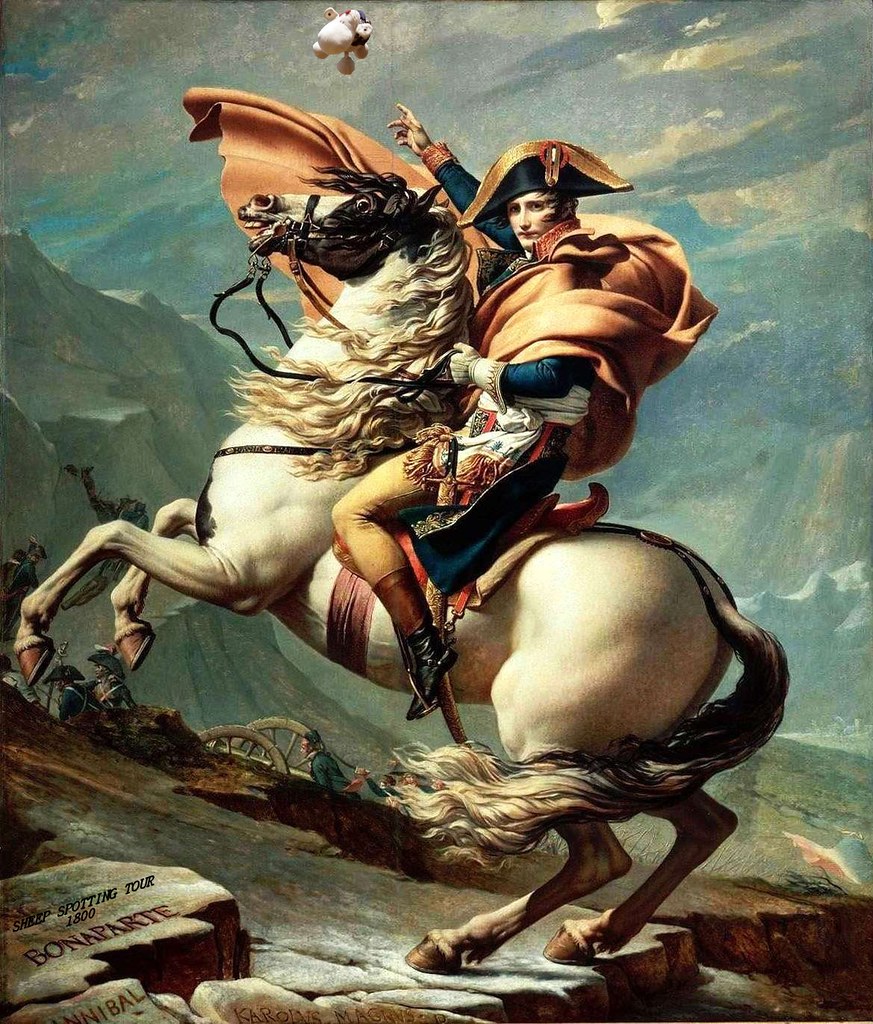
Napoleon at the Battle of Austerlitz, by François Gérard1805. The Battle of Austerlitz, also known as the Battle of the Three Emperors, was Napoleon's greatest victory, where theFrench Empire effectively crushed the Third Coalition.
|
|
| |
|
The Rise of Napoleon BonaparteNapoleon Bonaparte was not born into power. Life for him began in August of 1769. Born to Corsican aristocrat parents his beginning was founded on a hatred for the country he would later reside over. Not quite nobility, one would assume that Bonaparte’s chance to rise was somewhat slim. He spent his early years in a military school in France and was considered an outsider, because most of the other students came from rich French families. It wasn’t until the French Revolution, when France was in dire straits, that Napoleon burst onto the scene. Some might say that France’s social and economic decline alone paved a clear path for Napoleon to rise to power. I beg to differ, citing many different reasons and circumstances as to why Bonaparte was able to pull off the power climb that he did. In this essay I will describe, evaluate and analyze the instances that enabled Napoleon to become Emperor. Before Bonaparte became involved, France was in a war that divided many of its citizens. Although the war was not particularly protested, the basis for war was something that no one could agree on. Right royalists wanted war in hopes of reviving the rule of Louis XVI, the republican left’s ideas were strongly conflicting as they hoped the war would present a chance to overthrow the King and form a republic. The beginning of this revolution left France in a terrible state. Its army was not up to par as it had once been. People were not encouraged and willing to fight. On August 23rd a total mobilization of France was ordered, which meant that every able-bodied person would have some place in the army. All men would fight. Married men would forge weapons, even women and children would be given responsibilities such as serving in hospitals and tearing rags into lint respectively. This in fact helped improve the moral of the country. Soldiers for once had in their minds a valid reason to fight. In 1793 Louis XVI was beheaded and France became a republic, led by Robespierre and also ensued was The Reign of Terror. Just a year later, he was executed and France had even more troubles seeing as Austria, Spain, Prussia and Great Britain did not agree with the politics of the republic. In times such as these, where France needed a “hero” so to speak, the country almost beckoned someone to come and inspire them. Someone who would be able to encourage the French people. Napoleon fit that criteria. In my opinion, I don’t think it was just a matter of circumstance which allowed Napoleon to spring onto the political scene. Of course, the state of France was a good platform for him to use, but one can not over look the obvious and outstanding characteristics of Napoleon himself. Those very close to him feared him, yet the majority of the population seemed to welcome his uprising. He represented all the promises the French people wanted to hear. After years of suffering they looked to him for hope of finally restoring peace and a unified nation. It is amazing that a single person as cunning as Bonaparte could have an entire nation fooled. While I don’t believe all of Napoleons intentions were misguided, I do assert that almost everything he did was self motivated to somehow increase his own self worth. If he were alive today I am sure any psychiatrist would classify him as being a text book narcissist. His own wife even feared him greatly. If not for her deteriorating financial situation, she probably would have never married him. At the siege of Toulan, Bonaparte was promoted to commander of the artillery of the Army of Italy (which was the French army positioned in Italy at the time). With them he planned battles and acquired approval of Robespierre’s younger brother, which wasn’t necessarily a good thing. Many did not take a liking to the idea of anyone supporting Robespierre’s views and subsequently in July of 1794, Bonaparte was treated as a terrorist and detained. When he was released he returned to the Army of Italy. In 1795 he was stationed in Paris and he received a job in the Topographical Bureau. It was there that he met many people that would come to influence him. One such person was Paul Francois Barras and his mistress Josephine Beaharnais. Barras would become someone very close to Napoleon and Josephine, even closer, would become his wife. It’s the small things such as Bonaparte’s denial to be located with the military in Turkey that could attribute to his rise. Could it be said that had he been accepted to fight in Turkey, that he never would have crossed paths with Barras? Maybe or maybe not, but regardless he did and his relationship with Barras would prove to be a strong one.
When on October 4th many of the members of the Commune of Paris lined the streets, Napoleon took advantage of the situation. He immediately went to the Convention and it was there that some proposed Bonaparte to be the one to help save the republic. With Barras named the commander in chief of the Committee of Public Safety, Napoleon was put in charge of operations. Again, his politically influential friendships obviously helped him acquire this position. The following day in the afternoon Napoleon took full advantage of his new title, went to the streets and did away with the mobs of rebel royalists. While any other person in a situation such as this might have taken the time to think of a proper plan, Napoleon’s level headed impulsiveness clearly worked to his benefit, for shortly after this victory he was appointed commander of the Army of the Interior. A few months after that another promotion to commander in chief of the Army of Italy. There are a few guesses as to why Bonaparte was promoted. The popular one is that he had received a promise from Barras to lead an army if he could in fact defeat the royalists. Another colorful theory suggests that his title was a gift from Barras for taking his mistress, Josephine, off of his hands. Seeing how Napoleon was viewed as an intelligent man, I don’t understand why his quick rise was such a shock. After losing many battles and having a country at it’s wits end, it must have been a refreshing resurgence of patriotism to see someone take charge and use such swift action. In 1796 when Napoleon did head to Italy, he was faced with a group of discouraged and malnourished soldiers. Other commanders had failed before him. It wouldn’t be a surprise if he failed too. Yet Bonaparte was energetic and optimistic. He greeted his new army with welcoming words, “Soldiers! You are ill-fed and almost naked. The government owes you a great deal, but it can do nothing for you. Your patience and courage do you honor but give you neither worldly goods nor glory. I shall lead you into the most fertile plains on earth. There you shall find great cities and rich provinces. There you shall find honor, glory, riches. Soldiers of the Army of Italy! Could courage and constancy possibly fail you?” This empowering speech almost makes me want to pick up arms and head out into the Alps. It was with this kind of determination that he won many of his wars. The fact that not only did he give inspiring talks, but he had strong physical demands of his army as well. They marched fast, long and with great endurance. After a year and a half of being in Italy, he nearly conquered most of the land. Even though most victories were not large, in the minds of his soldiers and France they were. This was the first time in a while they could bask in the glory of their triumph. He fought many battles while with the Army of Italy including Montenotte, Millesimo, Dego, and Mondovi. Most of the people in Italy looked upon Napoleon as someone who had set them free from Austrian rule, even though he looted their artwork and fortunes to pay his soldiers and himself. It was at this time it had been said that Napoleon truly found his inner calling. He had decided that he was destined to rise, to become a great leader. His fascination with becoming King of France bordered on insane, although his aspirations might not have been quite so high at the time. He said after his army defeated their adversaries at Lodi, “From that moment, I foresaw what I might be. Already I felt the earth flee from beneath me, as if I were being carried into the sky.” Returning to France only heightened his self assurance. His fellow Frenchmen looked up to him with admiration. Even though his knowledge in math wasn’t that great, he was still chosen as a member for the National Institute in the Mathematical Section. The treatment he endured surely only strengthened his ego, but this wasn’t enough. Napoleon never seemed to be satisfied, as if constantly pushing himself to the limits, believing that he could achieve so much more. This dissatisfaction led him to conjure up the not so new idea of taking over Egypt.
What the foreign minister to Louis XV had thought about, Napoleon now sought out to do himself. Since it was widely known that Egypt belonged to no one, he thought that is was best to gain control over this land before anyone else could get their hands on it. Not to mention what victory in Egypt could do for his political career. This deployment was an attempt at secrecy, even though the British knew something was going on and decided to send Sir Nelson and his convoy on a mission to find the French and destroy them where ever they may be heading. His ship was sailing twice as fast as Napoleon’s fleet. One foggy night he passed the French convoy unintentionally. Had the environment been different that evening would the two countries engaged in battle then? Would the outcome have been different? Regardless, Nelson’s ships ported in Alexandria only to find it empty so the British left. A couple days later Napoleon and his massive army arrived. They proceeded to over take Alexandria rather quickly then headed on ward towards Cairo. Bonaparte believed that he was coming under the Sultans authority to free the people of Egypt, but that was not the case. Turkey had already embarked on a war against France unbeknownst to Napoleon. While he fought his way to Cairo, the rest of Bonaparte’s fleet was met with a rude awakening at Abukir Bay. Nelson had learned of the French there and immediately ordered an attack. It was a battle that destroyed many ships and sailors, but possibly even more devastating was the fact that now Napoleon had no way back to his homeland. This battle, the Battle of The Nile, was the main cause the Sultan went to war with France. Even though it could easily be categorized as a defeat, these events proved to be empowering for Napoleon. Showing that his over inflated ego was still growing, grandiose ideas enveloped in his mind. The fallacy of victory, the bulletins he sent out proclaiming faulty casualty numbers; Did he truly believe himself to be a victor? The people of France fell under this belligerent general’s spell. During the last month of the year 1799, Napoleon took it open himself to draft a new constitution. There was a process that usually ensued when doing this sort of thing, but Bonaparte could not wait. His desire was to conquer everything. In his mind it was the only possible way. Most people could not govern themselves. On December 25th the Constitution of the Year VIII was law and it named Napoleon as First Consul which gave him his first spot in politics. Generally he appointed ministers for every thing imaginable, basically giving him limited control over it all. He also is responsible for creating The Council of State, which its ideas were later used in forming some American politics. Napoleon seemed at this time to be in his peak. By 1801 he had begun negotiations with Pope Pius VII in Italy to reinstate Catholicism in France, which led to the Concordat. It stated that the Church would not be given back property that was taken during the Revolution, that the First Consul would assign bishops and that clergy would be paid by the government. While it confused others, this was all part of Napoleon’s plan of having French rule in Italy. Around that same time a peace treaty was signed between England and France, stopping war for the first time in ten years. During this reform, the Louisiana Purchase was signed and the United States received its 18th state. Another reason one could assume this was the peak for Napoleon was that he created the Civil Code. This code changed the civility of France. Men grew stronger, while women grew weaker. But with this code came many others, which proved beneficial. The Code of Civil Procedure, which essentially unified law and under it every man was equal. I believe this was Napoleon’s last outstanding accomplishment before his downfall. Of course, he did go on to win many more battles, but before then his exterior began to crack and the ruthlessness and greed that corrupted his mind was evident. The Napoleonic era coexisted with the Romanticism that swept through Europe. Napoleons once favorable public opinion, could now be tarnished by the words of authors and poets. One such writer, Madame de Staelwrote la Grande National which in essence offered that one nation could benefit from another. This displeased Napoleon and he had written to the Madame, “We have not yet reached the point where we have to model ourselves on the nations you admire. Your last work is un-French.” Later upon spending some time near Bonaparte she mentioned that the terror he inspired was inconceivable. The harsh and unjust punishment demanded by Napoleon after an assassination attempt upon him proves my opinion of his character. He made the decision in haste that the Jacobins were responsible and subsequently had them deported or executed. The fact that some had credible evidence to disprove this theory did not matter. His judgement was impulsive and swift. Some of the qualities that helped him rise in the beginning now were traits of his overall apathetic demeanor. His delusions now ranked quite high. First Consul was not enough for him, he was still considered equal to his generals. Even though he was not exactly of noble birth, (he was hardly a Frenchman, his town had been taken over by France just three months before his birth) he still set his ambitions on the Crown and would stop at nothing to get it, including war. He met with a British ambassador to have a discussion and this once calculated mad lost his cool and was seething with rage. On May 18th 1803, England declared war on France. Bonaparte’s political position was fragile. He learned of a royalist plot to do away with republicanism from Joseph Fouce. Of course this idea did not fit into Napoleon’s plans. His anxious suspicion got the best of him as he scoured to find out who could possibly be of royal blood to replace him. It almost seemed a random guess when he came up with duc d’Enghien, since there was literally no evidence to support Napoleon’s claims. Out of sheer greed for the throne and in my opinion jealousy, he had the young man kidnaped and murdered. Duc d’Enghien’s ultimate demise is depicted in The Age of Napoleon with the essence of a Shakespear tragedy. Fouche, who was a cohort in the kidnaping of the young royal, was quoted as saying, “It was worse than a crime-it’s a mistake.” When a Cardinal properly married Bonaparte and his wife, and he became Emperor. It was this point in my belief, that Bonaparte began his decline. They say all genius borders on insanity, to which I firmly agree. It can not be contested that Napoleon was a calculating and intelligent man who brought France through a much needed revolution, but one has to wonder if his selfishly delusional ambition got in the way of what he could have become. Through his later actions he showed that he was not the “hero” France needed, but that France was the pawn in his scheme of getting to the top. I think the last line in J. Christopher Heralds historical novel sums it up best and to quote him, “There is nothing the dictators of the twentieth century could have taught [Napoleon], except perhaps the lesson that a dictator must never try to be emperor.” Both France and Britain had become tired of war and signed the Treaty of Amiens in October 1801 and March 1802. This called for the withdrawal of British troops from most colonial territories it had recently occupied.[75] The peace was uneasy and short-lived. Britain did not evacuate Malta as promised and protested against Bonaparte's annexation of Piedmont and his Act of Mediation, which established a new Swiss Confederation, though neither of these territories were covered by the treaty.[77] The dispute culminated in a declaration of war by Britain in May 1803, and he reassembled the invasion camp at Boulogne.[63] Bonaparte faced a major setback and eventual defeat in the Haitian Revolution. By the Law of 20 May 1802 Bonaparte re-established slavery in France's colonial possessions, where it had been banned following the Revolution.[78] Following a slave revolt, he sent an army to reconquer Saint-Domingue and establish a base. The force was, however, destroyed by yellow fever and fierce resistance led by Haitian generals Toussaint Louverture and Jean-Jacques Dessalines.[note 7] Faced by imminent war against Britain and bankruptcy, he recognised French possessions on the mainland of North America would be indefensible and sold them to the United States—the Louisiana Purchase—for less than three cents per acre (7.4 cents per hectare).[80] French EmpireMain article: First French Empire See also: Coronation of Napoleon I and Napoleonic Wars Napoleon faced royalist and Jacobin plots as France's ruler, including the Conspiration des poignards (Dagger plot) in October 1800 and the Plot of the Rue Saint-Nicaise (also known as the infernal machine) two months later.[81] In January 1804, his police uncovered an assassination plot against him which involved Moreau and which was ostensibly sponsored by the Bourbon former rulers of France. On the advice of Talleyrand, Napoleon ordered the kidnapping of Louis Antoine, Duke of Enghien, in violation of neighbouring Baden's sovereignty. After a secret trial the Duke was executed, even though he had not been involved in the plot.[82]
Napoleon used the plot to justify the re-creation of a hereditary monarchy in France, with himself as emperor, as a Bourbon restoration would be more difficult if the Bonapartist succession was entrenched in the constitution.[83] Napoleon was elected as "Emperor of the French" by plebiscite[84] and was crownedby Pope Pius VII as Napoleon I, on 2 December 1804 at Notre Dame de Paris and then crowned Joséphine Empress. The story that Napoleon seized the crown out of the hands of Pope Pius VII during the ceremony to avoid his subjugation to the authority of the pontiff is apocryphal; the coronation procedure had been agreed in advance.[note 8][85] Ludwig van Beethoven, a long-time admirer, was disappointed at this turn towards imperialism and scratched his dedication to Napoleon from his 3rd Symphony.[83] At Milan Cathedral on 26 May 1805, Napoleon was crowned King of Italy with the Iron Crown of Lombardy. He created eighteen Marshals of the Empirefrom amongst his top generals, to secure the allegiance of the army. War of the Third CoalitionMain article: War of the Third Coalition Napoleon at the Battle of Austerlitz, by François Gérard1805. The Battle of Austerlitz, also known as the Battle of the Three Emperors, was Napoleon's greatest victory, where theFrench Empire effectively crushed the Third Coalition. Great Britain broke the Peace of Amiens and declared war on France in May 1803. Napoleon set up a camp at Boulogne-sur-Mer to prepare for aninvasion of Britain. By 1805, Britain had convinced Austria and Russia to join a Third Coalition against France. Napoleon knew the French fleet could not defeat the Royal Navy in a head-to-head battle and planned to lure it away from the English Channel.[86] The French Navy would escape from the British blockades of Toulon and Brest and threaten to attack the West Indies, thus drawing off the British defence of the Western Approaches, in the hope a Franco-Spanish fleet could take control of the channel long enough for French armies to cross from Boulogne and invade England.[86] However, after defeat at the naval Battle of Cape Finisterre in July 1805 andAdmiral Villeneuve's retreat to Cadiz, invasion was never again a realistic option for Napoleon.[87] As the Austrian army marched on Bavaria, he called the invasion of Britain off and ordered the army stationed at Boulogne, his Grande Armée, to march to Germany secretly in a turning movement—the Ulm Campaign. This encircled the Austrian forces about to attack France and severed their lines of communication. On 20 October 1805, the French captured 30,000 prisoners at Ulm, though the next day Britain's victory at the Battle of Trafalgar meant the Royal Navy gained control of the seas.[88] Six weeks later, on the first anniversary of his coronation, Napoleon defeated Austria and Russia at Austerlitz. This ended the Third Coalition, and he commissioned the Arc de Triomphe to commemorate the victory. Austria had to concede territory; the Peace of Pressburg led to the dissolution of the Holy Roman Empire and creation of the Confederation of the Rhine with Napoleon named as its Protector.[88] Napoleon would go on to say, "The battle of Austerlitz is the finest of all I have fought."[89] Frank McLynn suggests Napoleon was so successful at Austerlitz he lost touch with reality, and what used to be French foreign policy became a "personal Napoleonic one".[90] Vincent Cronin disagrees, stating Napoleon was not overly ambitious for himself, that "he embodied the ambitions of thirty million Frenchmen".[91] Middle-Eastern alliancesMain articles: Franco-Ottoman alliance and Franco-Persian alliance The Persian Envoy Mirza Mohammed Reza-Qazvini meets with Napoleon I atFinckenstein Palace, 27 April 1807, byFrançois Mulard Even after the failed campaign in Egypt, Napoleon continued to entertain a grand scheme to establish a French presence in the Middle East.[56] An alliance with Middle-Eastern powers would have the strategic advantage of pressuring Russia on its southern border. From 1803, Napoleon went to considerable lengths to try to convince the Ottoman Empire to fight against Russia in the Balkans and join his anti-Russian coalition.[92] Napoleon sent General Horace Sebastiani as envoy extraordinary, promising to help the Ottoman Empire recover lost territories.[92] In February 1806, following Napoleon's victory at Austerlitz and the ensuing dismemberment of the Habsburg Empire, the Ottoman Emperor Selim III finally recognised Napoleon as Emperor, formally opting for an alliance with France "our sincere and natural ally", and war with Russia and England.[93] A Franco-Persian alliance was also formed, from 1807 to 1809, between Napoleon and the Persian Empire of Fat′h-Ali Shah Qajar, against Russia and Great Britain. The alliance ended when France allied with Russia and turned its focus to European campaigns.[56] War of the Fourth CoalitionMain article: War of the Fourth Coalition The Treaties of Tilsit: Napoleon meeting with Alexander I of Russia on a raft in the middle of the Neman River The Fourth Coalition was assembled in 1806, and Napoleon defeated Prussia at the Battle of Jena-Auerstedt in October.[94] He marched against advancing Russian armies through Poland and was involved in the bloody stalemate of the Battle of Eylau on 6 February 1807.[95] After a decisive victory at Friedland, he signed the Treaties of Tilsit; one with Tsar Alexander I of Russia which divided the continent between the twopowers; the other with Prussia which stripped that country of half its territory. Napoleon placed puppet rulers on the thrones of German states, including his brother Jérôme as king of the new Kingdom of Westphalia. In the French-controlled part of Poland, he established the Duchy of Warsaw with KingFrederick Augustus I of Saxony as ruler.[96] With his Milan and Berlin Decrees, Napoleon attempted to enforce a Europe-wide commercial boycott of Britain called the Continental System. This act of economic warfare did not succeed, as it encouraged British merchants to smuggle into continental Europe, and Napoleon's exclusively land-based customs enforcers could not stop them.[97] Peninsular WarMain article: Peninsular War Portugal did not comply with the Continental System, so in 1807 Napoleon invaded with the support of Spain. Under the pretext of a reinforcement of the Franco-Spanish army occupying Portugal, Napoleon invaded Spain as well, replaced Charles IV with his brother Joseph and placed his brother-in-law Joachim Murat in Joseph's stead at Naples. This led to resistance from the Spanish army and civilians in the Dos de Mayo Uprising.[98] Joseph Bonaparte, Napoleon's brother, as King of Spain In Spain, Napoleon faced a new type of war, coined since then as guerrilla, in which the local population, inspired by religion and patriotism, was heavily involved. This early type of national war consisted of various types of low intensity fighting (ambushes, sabotage, uprisings...) and open support to the Spanish-allied regular armies. Following a French retreat from much of the country, Napoleon took command and defeated the Spanish Army. He retook Madrid, then outmanoeuvred a British army sent to support the Spanish and drove it to the coast.[99] Before the Spanish population had been fully subdued, Austria again threatened war, and Napoleon returned to France.[100] The costly and often brutal Peninsular War continued in Napoleon's absence; in the second Siege of Zaragoza most of the city was destroyed and over 50,000 people perished.[101] Although Napoleon left 300,000 of his finest troops to battle Spanish guerrillas as well as British and Portuguese forces commanded byArthur Wellesley, 1st Duke of Wellington, French control over the peninsula again deteriorated.[102] Following several allied victories, the war concluded after Napoleon's abdication in 1814.[103] Napoleon later described the Peninsular War as central to his final defeat, writing in his memoirs "That unfortunate war destroyed me... All... my disasters are bound up in that fatal knot."[104] War of the Fifth Coalition and remarriageMain article: War of the Fifth Coalition Napoleon at Wagram, painted by Horace Vernet In April 1809, Austria abruptly broke its alliance with France, and Napoleon was forced to assume command of forces on the Danube and German fronts. After early successes, the French faced difficulties in crossing the Danube and suffered a defeat in May at the Battle of Aspern-Essling near Vienna. The Austrians failed to capitalise on the situation and allowed Napoleon's forces to regroup. He defeated the Austrians again at Wagram, and the Treaty of Schönbrunn was signed between Austria and France.[105] Britain was the other member of the coalition. In addition to the Iberian Peninsula, the British planned to open another front in mainland Europe. However, Napoleon was able to rush reinforcements to Antwerp, owing to Britain's inadequately organised Walcheren Campaign.[106] He concurrently annexed the Papal States because of the Church's refusal to support the Continental System; Pope Pius VII responded byexcommunicating the emperor. The pope was then abducted by Napoleon's officers, and though Napoleon had not ordered his abduction, he did not order Pius' release. The pope was moved throughout Napoleon's territories, sometimes while ill, and Napoleon sent delegations to pressure him on issues including agreement to a new concordat with France, which Pius refused. In 1810 Napoleon married Archduchess Marie Louise of Austria, following his divorce of Joséphine; this further strained his relations with the Church, and thirteen cardinals were imprisoned for non-attendance at the marriage ceremony.[107] The pope remained confined for 5 years and did not return to Rome until May 1814.[108] First French Empire at its greatest extent in 1811 French Empire French satellite states Allied states In November 1810, Napoleon consented to the ascent to the Swedish throne of Bernadotte, one of his marshals, with whom Napoleon had always had strained relations. Napoleon had indulged Bernadotte's indiscretions because he was married to Désirée Clary, his former fiancée and sister of the wife of his brother Joseph. Napoleon came to regret accepting this appointment when Bernadotte later allied Sweden with France's enemies.[109] Invasion of RussiaMain article: French invasion of Russia The Moscow fire depicted by an unknown German artist The Congress of Erfurt sought to preserve the Russo-French alliance, and the leaders had a friendly personal relationship after their first meeting at Tilsit in 1807.[110] By 1811, however, tensions had increased and Alexander was under pressure from the Russian nobility to break off the alliance. An early sign the relationship had deteriorated was the Russian's virtual abandonment of the Continental System, which led Napoleon to threaten Alexander with serious consequences if he formed an alliance with Britain.[111] By 1812, advisers to Alexander suggested the possibility of an invasion of the French Empire and the recapture of Poland. On receipt of intelligence reports on Russia's war preparations, Napoleon expanded hisGrande Armée to more than 450,000 men.[112] He ignored repeated advice against an invasion of the Russian heartland and prepared for an offensive campaign; on 23 June 1812 the invasion commenced.[113] Napoleon's withdrawal from Russia, a painting by Adolph Northen In an attempt to gain increased support from Polish nationalists and patriots, Napoleon termed the war theSecond Polish War—the First Polish War had been the Bar Confederation uprising by Polish nobles against Russia in 1768. Polish patriots wanted the Russian part of Poland to be joined with the Duchy of Warsaw and an independent Poland created. This was rejected by Napoleon, who stated he had promised his ally Austria this would not happen. Napoleon refused to manumit the Russian serfs because of concerns this might provoke a reaction in his army's rear. The serfs later committed atrocities against French soldiers during France's retreat.[114] The Russians avoided Napoleon's objective of a decisive engagement and instead retreated deeper into Russia. A brief attempt at resistance was made at Smolensk in August; the Russians were defeated in a series of battles, and Napoleon resumed his advance. The Russians again avoided battle, although in a few cases this was only achieved because Napoleon uncharacteristically hesitated to attack when the opportunity arose. Owing to the Russian army's scorched earth tactics, the French found it increasingly difficult to forage food for themselves and their horses.[115] The Russians eventually offered battle outside Moscow on 7 September: the Battle of Borodino resulted in approximately 44,000 Russian and 35,000 French dead, wounded or captured, and may have been the bloodiest day of battle in history up to that point in time.[116] Although the French had won, the Russian army had accepted, and withstood, the major battle Napoleon had hoped would be decisive. Napoleon's own account was: "The most terrible of all my battles was the one before Moscow. The French showed themselves to be worthy of victory, but the Russians showed themselves worthy of being invincible."[117] The Russian army withdrew and retreated past Moscow. Napoleon entered the city, assuming its fall would end the war and Alexander would negotiate peace. However, on orders of the city's governor Feodor Rostopchin, rather than capitulation, Moscow was burned. After a month, concerned about loss of control back in France, Napoleon and his army left.[118] The French suffered greatly in the course of a ruinous retreat, including from the harshness of the Russian Winter. The Armée had begun as over 400,000 frontline troops, but in the end fewer than 40,000 crossed the Berezina River in November 1812.[119] The Russians had lost 150,000 in battle and hundreds of thousands of civilians.[120] War of the Sixth CoalitionMain article: War of the Sixth Coalition Adieux de Napoléon à la Garde impériale dans la cour du Cheval-Blanc du château de Fontainebleau [Napoleon's farewell to the Imperial Guard in the White Horse courtyard of the Palace of Fontainebleau] – on 20 April 1814; by Antoine Alphonse Montfort, Palace of Versailles national museum There was a lull in fighting over the winter of 1812–13 while both the Russians and the French rebuilt their forces; Napoleon was then able to field 350,000 troops.[121] Heartened by France's loss in Russia, Prussia joined with Austria, Sweden, Russia, Great Britain, Spain, and Portugal in a new coalition. Napoleon assumed command in Germany and inflicted a series of defeats on the Coalition culminating in the Battle of Dresden in August 1813.[122] Despite these successes, the numbers continued to mount against Napoleon, and the French army was pinned down by a force twice its size and lost at the Battle of Leipzig. This was by far the largest battle of the Napoleonic Wars and cost more than 90,000 casualties in total.[123] Napoleon withdrew back into France, his army reduced to 70,000 soldiers and 40,000 stragglers, against more than three times as many Allied troops.[124] The French were surrounded: British armies pressed from the south, and other Coalition forces positioned to attack from the German states. Napoleon won a series of victories in the Six Days' Campaign, though these were not significant enough to turn the tide; Paris was captured by the Coalition in March 1814.[125] When Napoleon proposed the army march on the capital, his marshals decided to mutiny.[126] On 4 April, led by Ney, they confronted Napoleon. Napoleon asserted the army would follow him, and Ney replied the army would follow its generals. Napoleon had no choice but to abdicate. He did so in favour of his son; however, the Allies refused to accept this, and Napoleon was forced to abdicate unconditionally on 11 April. Exile to ElbaBritish etching from 1814 in celebration of Napoleon's first exile to Elba at the close of the War of the Sixth Coalition
In the Treaty of Fontainebleau, the victors exiled him to Elba, an island of 12,000 inhabitants in the Mediterranean, 20 km off the Tuscan coast. They gave him sovereignty over the island and allowed him to retain his title of emperor. Napoleon attempted suicide with a pill he had carried since a near-capture by Russians on the retreat from Moscow. Its potency had weakened with age, and he survived to be exiled while his wife and son took refuge in Austria.[128] In the first few months on Elba he created a small navy and army, developed the iron mines, and issued decrees on modern agricultural methods.[129] Hundred DaysMain article: Hundred Days Napoleon returned from Elba, by Karl Stenben, 19th century Separated from his wife and son, who had come under Austrian control, cut off from the allowance guaranteed to him by the Treaty of Fontainebleau, and aware of rumours he was about to be banished to a remote island in the Atlantic Ocean, Napoleon escaped from Elba on 26 February 1815. He landed at Golfe-Juan on the French mainland, two days later.[130] The 5th Regiment was sent to intercept him and made contact just south of Grenoble on 7 March 1815. Napoleon approached the regiment alone, dismounted his horse and, when he was within gunshot range, shouted, "Here I am. Kill your Emperor, if you wish."[131] The soldiers responded with, "Vive L'Empereur!" and marched with Napoleon to Paris; Louis XVIII fled. On 13 March, the powers at the Congress of Vienna declared Napoleon an outlaw, and four days later Great Britain, Russia, Austria, and Prussia bound themselves to each put 150,000 men into the field to end his rule.[132] Napoleon arrived in Paris on 20 March and governed for a period now called the Hundred Days. By the start of June the armed forces available to him had reached 200,000, and he decided to go on the offensive to attempt to drive a wedge between the oncoming British and Prussian armies. The French Army of the North crossed the frontier into the United Kingdom of the Netherlands, in modern-day Belgium.[133] Napoleon's forces fought the allies, led by Wellington and Gebhard Leberecht von Blücher, at the Battle of Waterloo on 18 June 1815. Wellington's army withstood repeated attacks by the French and drove them from the field while the Prussians arrived in force and broke through Napoleon's right flank. Napoleon was defeated because he had to fight two armies with one, attacking an army in an excellent defensive position through wet and muddy terrain. His poor health that day may have affected his presence and vigour on the field, added to the fact that his subordinates may have let him down. Despite this, Napoleon came very close to victory. Outnumbered, the French army left the battlefield in disorder, which allowed Coalition forces to enter France and restore Louis XVIII to the French throne. Off the port of Rochefort, Charente-Maritime, after consideration of an escape to the United States, Napoleon formally demanded political asylum from the British Captain Frederick Maitland onHMS Bellerophon on 15 July 1815.[134] Exile on Saint HelenaNapoleon on Saint Helena Napoleon was imprisoned and then exiled to the island of Saint Helena in the Atlantic Ocean, 1,870 km from the west coast of Africa. In his first two months there, he lived in a pavilion on the Briars estate, which belonged to a William Balcombe. Napoleon became friendly with his family, especially his younger daughter Lucia Elizabeth who later wrote Recollections of the Emperor Napoleon.[135] This friendship ended in 1818 when British authorities became suspicious that Balcombe had acted as an intermediary between Napoleon and Paris and dismissed him from the island.[136] Napoleon moved to Longwood House in December 1815; it had fallen into disrepair, and the location was damp, windswept and unhealthy. The Timespublished articles insinuating the British government was trying to hasten his death, and he often complained of the living conditions in letters to the governor and his custodian, Hudson Lowe.[137] With a small cadre of followers, Napoleon dictated his memoirs and criticised his captors—particularly Lowe. Lowe's treatment of Napoleon is regarded as poor by historians such as Frank McLynn.[138] Lowe exacerbated a difficult situation through measures including a reduction in Napoleon's expenditure, a rule that no gifts could be delivered to him if they mentioned his imperial status, and a document his supporters had to sign that guaranteed they would stay with the prisoner indefinitely.[138] Longwood House, Saint Helena: site of Napoleon's captivity In 1818, The Times reported a false rumour of Napoleon's escape and said the news had been greeted by spontaneous illuminations in London.[note 9]There was sympathy for him in the British Parliament: Lord Holland gave a speech which demanded the prisoner be treated with no unnecessary harshness.[140] Napoleon kept himself informed of the events through The Times and hoped for release in the event that Holland became prime minister. He also enjoyed the support of Lord Cochrane, who was involved in Chile's and Brazil's struggle for independence and wanted to rescue Napoleon and help him set up a new empire in South America, a scheme frustrated by Napoleon's death in 1821.[141] There were other plots to rescue Napoleon from captivity including one from Texas, where exiled soldiers from the Grande Armée wanted a resurrection of the Napoleonic Empire in America. There was even a plan to rescue him with a primitive submarine.[142] For Lord Byron, Napoleon was the epitome of the Romantic hero, the persecuted, lonely and flawed genius. The news that Napoleon had taken up gardening at Longwood also appealed to more domestic British sensibilities.[143] DeathFurther information: Napoleon's Death Mask and Retour des cendres Napoleon's funeral carriage passes along the Champs-Élysées, engraving by Louis-Julien Jacottet after a drawing by Louis Marchand His personal physician, Barry O'Meara, warned the authorities of his declining state of health mainly caused, according to him, by the harsh treatment of the captive in the hands of his "gaoler", Lowe, which led Napoleon to confine himself for months in his damp and wretched habitation of Longwood. O'Meara kept a clandestine correspondence with a clerk at the Admiralty in London, knowing his letters were read by higher authorities: he hoped, in such way, to raise alarm in the government, but to no avail.[144] In February 1821, Napoleon's health began to fail rapidly, and on 3 May two British physicians, who had recently arrived, attended on him but could only recommend palliatives.[145] He died two days later, after confession, Extreme Unction and Viaticum in the presence of Father Ange Vignali.[145] His last words were, "France, armée, tête d'armée, Joséphine."("France, army, head of the army, Joséphine.")[145] Napoleon's original death mask was created around 6 May, though it is not clear which doctor created it.[146][note 10] In his will, he had asked to be buried on the banks of the Seine, but the British governor said he should be buried on St. Helena, in the Valley of the Willows. Hudson Lowe insisted the inscription should read "Napoleon Bonaparte"; Montholon and Bertrand wanted the Imperial title "Napoleon" as royalty were signed by their first names only. As a result the tomb was left nameless.[145] Napoleon's tomb at Les Invalides
In 1840, Louis Philippe I obtained permission from the British to return Napoleon's remains to France. The remains were transported aboard the frigateBelle-Poule, which had been painted black for the occasion, and on 29 November she arrived in Cherbourg. The remains were transferred to the steamship Normandie, which transported them to Le Havre, up the Seine to Rouen and on to Paris.[148] On 15 December, a state funeral was held. The hearse proceeded from the Arc de Triomphe down the Champs-Élysées, across the Place de la Concorde to the Esplanade des Invalides and then to the cupola in St Jérôme's Chapel, where it stayed until the tomb designed by Louis Visconti was completed. In 1861, Napoleon's remains were entombed in a porphyry sarcophagus in the crypt under the dome at Les Invalides.[148] Cause of deathNapoleon's physician, François Carlo Antommarchi, led the autopsy, which found the cause of death to be stomach cancer. Antommarchi did not, however, sign the official report.[149] Napoleon's father had died of stomach cancer though this was seemingly unknown at the time of the autopsy.[150]Antommarchi found evidence of a stomach ulcer, and it was the most convenient explanation for the British who wanted to avoid criticism over their care of the emperor.[145] Napoléon sur son lit de mort (Napoleon on his death bed), by Horace Vernet, 1826 In 1955, the diaries of Napoleon's valet, Louis Marchand, appeared in print. His description of Napoleon in the months before his death led Sten Forshufvud to put forward other causes for his death, including deliberate arsenic poisoning, in a 1961 paper in Nature.[151] Arsenic was used as a poison during the era because it was undetectable when administered over a long period. Forshufvud, in a 1978 book with Ben Weider, noted the emperor's body was found to be remarkably well-preserved when moved in 1840. Arsenic is a strong preservative, and therefore this supported the poisoning hypothesis. Forshufvud and Weider observed that Napoleon had attempted to quench abnormal thirst by drinking high levels of orgeat syrup that contained cyanide compounds in the almonds used for flavouring.[151] They maintained that the potassium tartrate used in his treatment prevented his stomach from expulsion of these compounds and that the thirst was a symptom of the poison. Their hypothesis was that the calomel given to Napoleon became an overdose, which killed him and left behind extensive tissuedamage.[151] A 2007 article stated the type of arsenic found in Napoleon's hair shafts was mineral type, the most toxic, and according to toxicologist Patrick Kintz, this supported the conclusion his death was murder.[152] The wallpaper used in Longwood contained a high level of arsenic compound used for dye by British manufacturers. The adhesive, which in the cooler British environment was innocuous, may have grown mould in the more humid climate and emitted the poisonous gas arsine. This theory has been ruled out as it does not explain the arsenic absorption patterns found in other analyses.[151] There have been modern studies which have supported the original autopsy finding.[152] Researchers, in a 2008 study, analysed samples of Napoleon's hair from throughout his life, and from his family and other contemporaries. All samples had high levels of arsenic, approximately 100 times higher than the current average. According to these researchers, Napoleon's body was already heavily contaminated with arsenic as a boy, and the high arsenic concentration in his hair was not caused by intentional poisoning; people were constantly exposed to arsenic from glues and dyes throughout their lives.[note 11] 2007 and 2008 studies dismissed evidence of arsenic poisoning, and confirmed evidence of peptic ulcer and gastric cancer as the cause of death.[154] ReformsBonaparte instituted lasting reforms, including higher education, a tax code, road and sewer systems, and established the Banque de France (central bank). He negotiated the Concordat of 1801with the Catholic Church, which sought to reconcile the mostly Catholic population to his regime. It was presented alongside the Organic Articles, which regulated public worship in France. Later that year, Bonaparte became President of the French Academy of Sciences and appointed Jean Baptiste Joseph Delambre its Permanent Secretary.[59] In May 1802, he instituted the Legion of Honour, a substitute for the old royalist decorations and orders of chivalry, to encourage civilian and military achievements; the order is still the highest decoration in France.[155] His powers were increased by the Constitution of the Year X including: Article 1. The French people name, and the Senate proclaims Napoleon-Bonaparte First Consul for Life.[156] After this he was generally referred to as Napoleon rather than Bonaparte.[24] Napoleon's set of civil laws, the Code Civil—now often known as the Napoleonic Code—was prepared by committees of legal experts under the supervision of Jean Jacques Régis de Cambacérès, the Second Consul. Napoleon participated actively in the sessions of the Council of State that revised the drafts. The development of the code was a fundamental change in the nature of the civil law legal system with its stress on clearly written and accessible law. Other codes were commissioned by Napoleon to codify criminal and commerce law; a Code of Criminal Instruction was published, which enacted rules of due process | 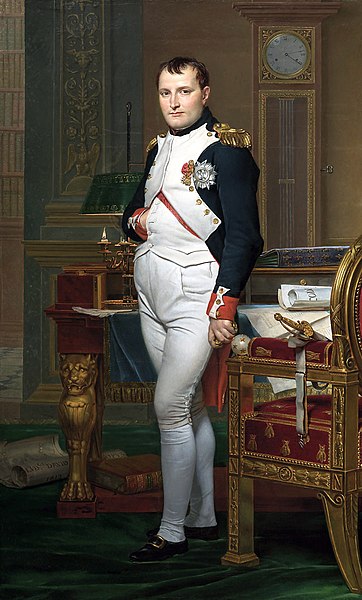
Napoleon's father Carlo Buonaparte was Corsica's representative to the court ofLouis XVI of France. Napoleon Bonaparte, aged 23, Lieutenant-Colonel of a battalion of Corsican Republican volunteers General Bonaparte at the siege of Toulon Bonaparte at the Pont d'Arcole, by Baron Antoine-Jean Gros, (ca.1801), |


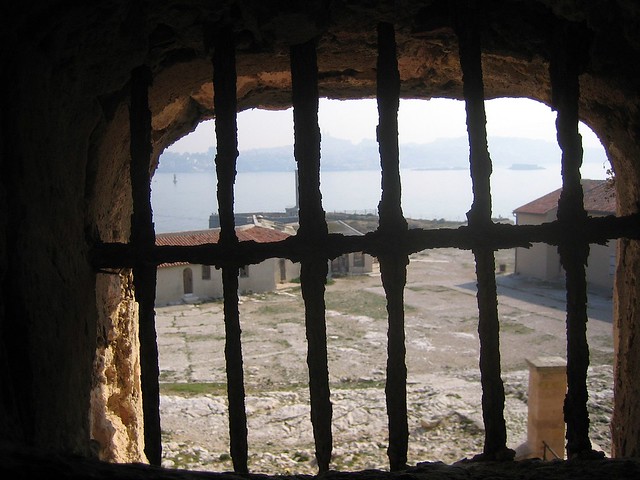

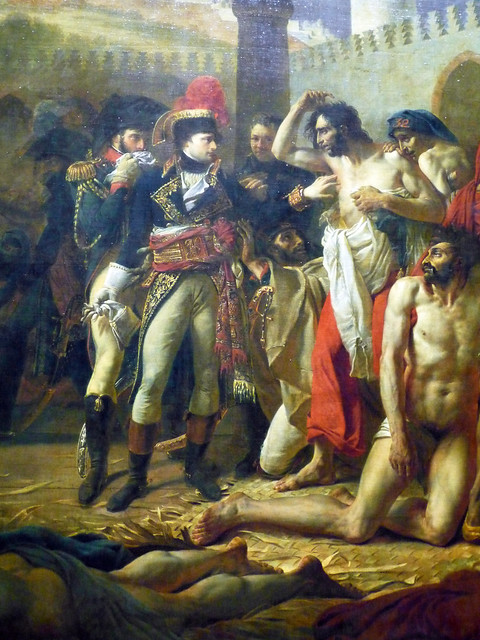


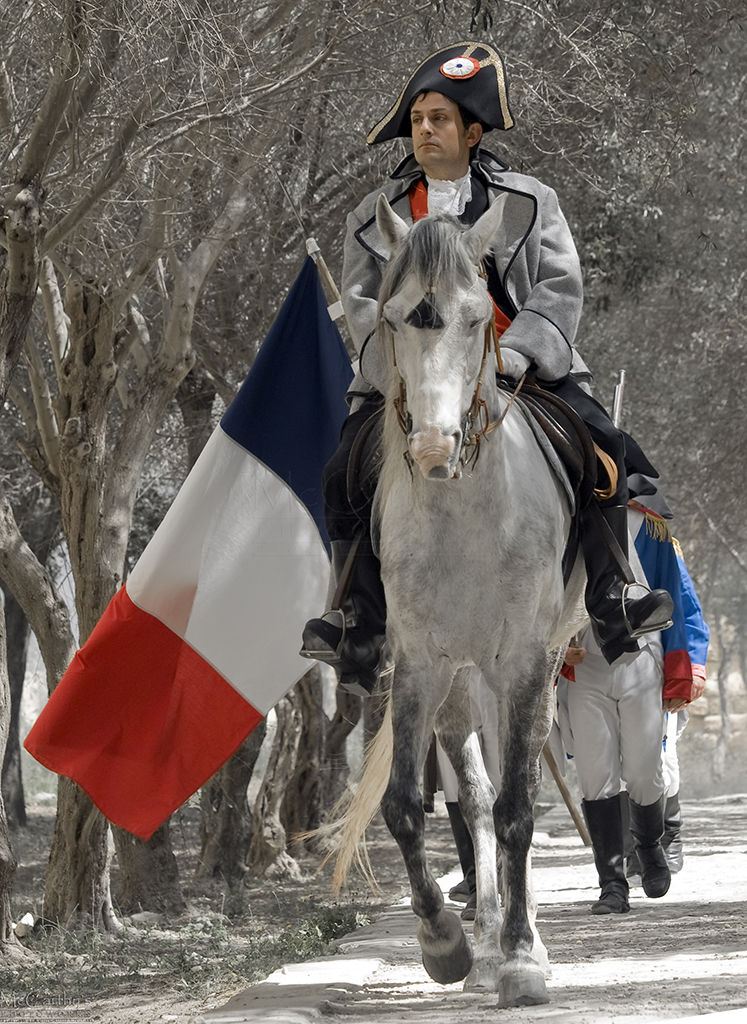

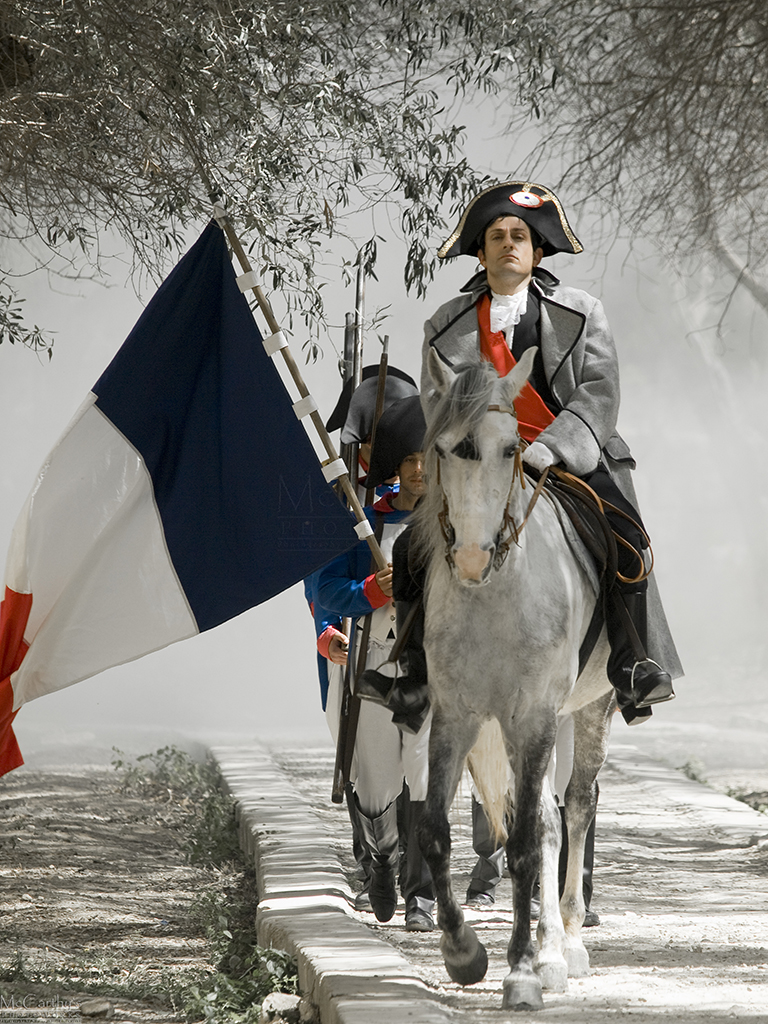
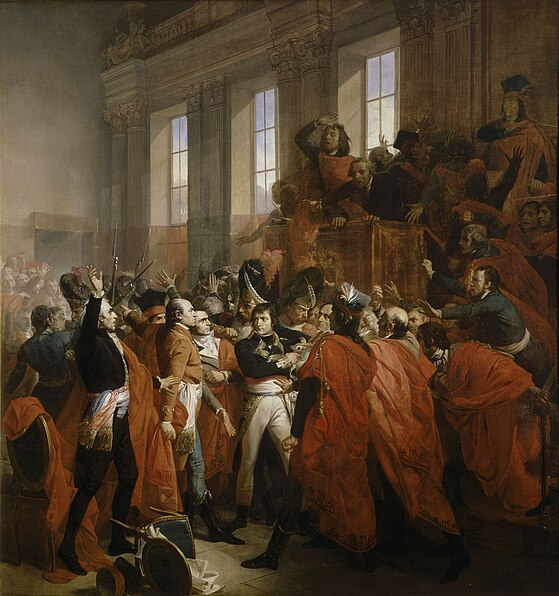


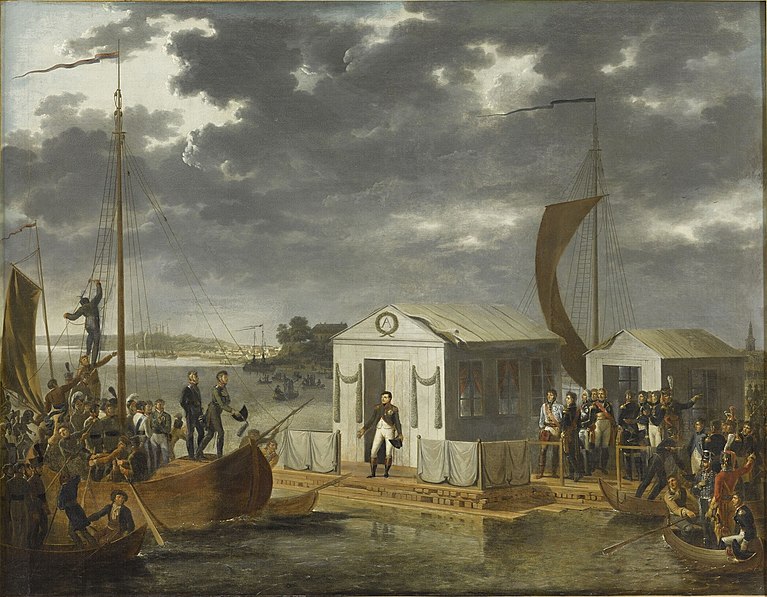
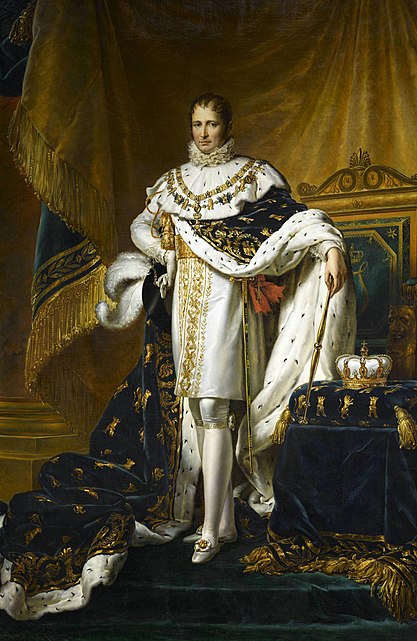




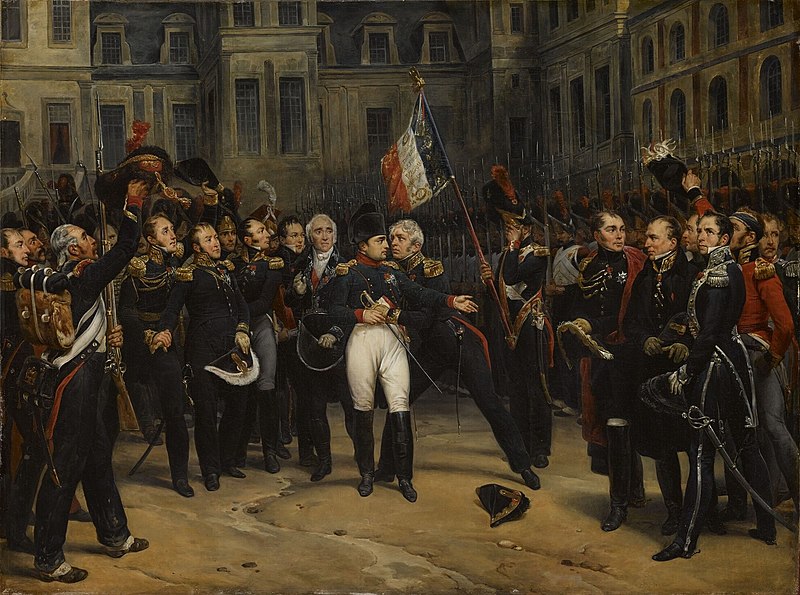





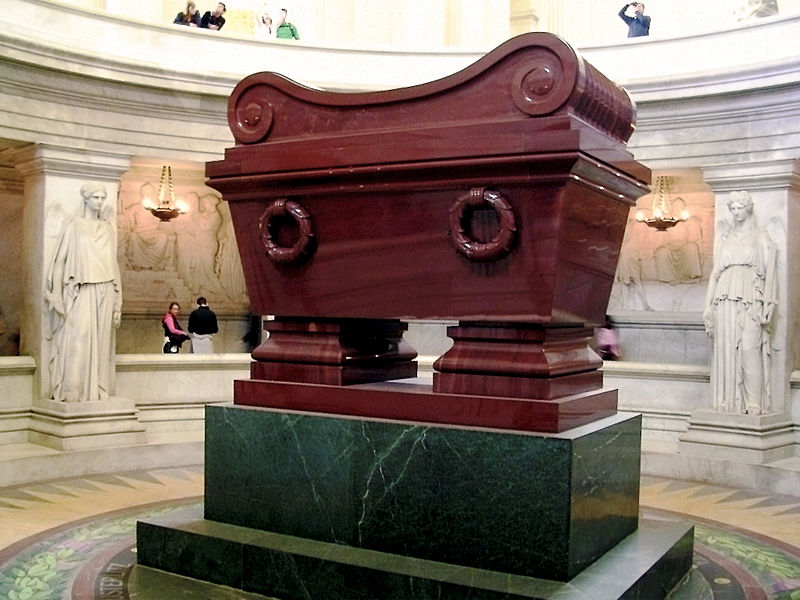



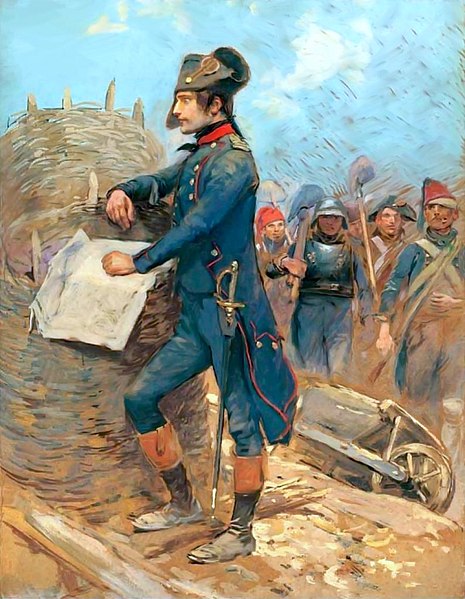

No comments:
Post a Comment